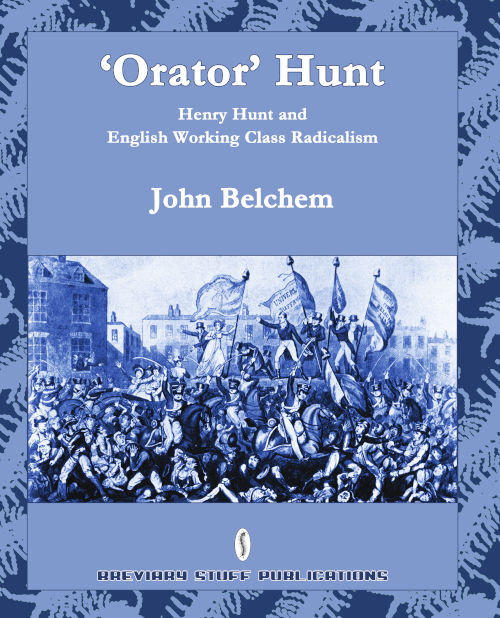- Abbreviations
- Introduction
- Part 1 • The Making of a Radical
- 1. Gentleman Farmer
2. Loyalist
3. ‘Bristol’ Hunt and the politics of independence and reform
(i) The Melville affair and the Ministry of All the Talents
(ii) The Bristol election of 1807
(iii) The revival of reform
(iv) The Bristol elections of 1812 - Part 2 • The Establishment of the Mass Platform
- 1. Hunt and the moderate reformers
2. Hunt and the ‘revolutionary party’
3. Spa Fields - Part 3 • Repression, Risings, and Reform, 1817-1818
- 1. Repression
2. Westminster elections, 1818 and 1819
3. The beginning of mobilization - Part 4 • The Radical Mobilization of 1819
- 1. The people’s champion
2. National union
3. Peterloo, the courts, and public opinion
4. Peterloo and forcible intimidation - Part 5 • The Revision of Radicalism
- 1. The ‘Captive of Ilchester’
2. Hunt and the Great Northern Union
3. Carlile and radical counter-culture
4. Cobbett’s desertion
5. Liberation - Part 6 • Reform in the 1820s
- 1. Radical businessman
2. County politics
3. City politics
4. Popular Westminster
5. Radical organization
(i) Friends of Civil and Religious Liberty
(ii) Radical Reform Association
(iii) Metropolitan Political Union - Part 7 • 1830 and the Development of Radicalism
- 1. The early months
2. The July Revolution and the revival of the platform
3. The advent of the Whigs; ‘Captain Swing’; and the Preston by-election - Part 8 • Hunt, Working-Class Radicalism and the Reform Bill
- 1. The ‘Bill of Bills’
2. ‘Re-action’ in the north
3. The general election of 1831, the northern deputies, and radical opposition to the Bill
4. The autumn crisis
5. ‘The poor man’s protector’
6. The Days of May
7. Defeat? - Conclusion
Bibliography
Index
John Belchem – ‘Orator’ Hunt
Henry Hunt and English Working Class Radicalism
£17.50
In the early 19th century, Henry Hunt became one of the most stirring orators of English Radicalism. His speech following the “Peterloo” massacre cost him three years in prison and gave him a reputation for inciting the rabble to violence. This book considers his place in the radical movement. This first full-scale biography finally brings to light Hunt’s vital role in molding the English working-class into an effective political force. Converted to the reform cause during the wars against Napoleonic France, Hunt gave popular radicalism a distinctly working-class perspective that countered the contemporary belief in a laissez-faire political economy. Hero of the unrepresented and repressed, scourge of the moderate reformers and gradualists, Hunt set the standard for the Chartist challenge. This work, based on a wide range of primary sources, reassesses Hunt’s influential career and illuminates a formative period in the development of radical politics in England.




